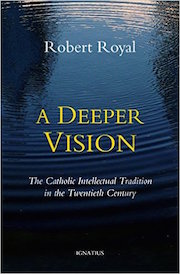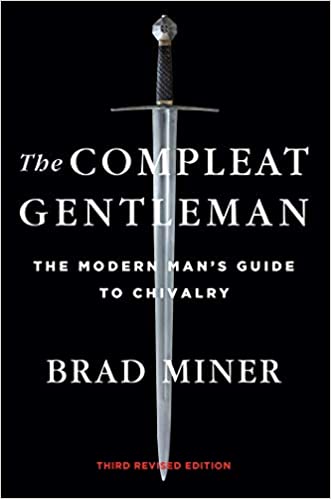I was in Vienna recently, speaking at a Thomistic symposium celebrating the 800th anniversary of the founding of the Dominican House of Studies there. From my room in the priory, I could view a park about a hundred or so yards away. On one of the days, there was a Gay Pride event in that park with a Gay Pride parade. Tens of thousands of people participated in this event and parade. The parade went on for over four hours! The participants were – to put it mildly – provocatively dressed and brazenly chanted militant gay mantras.
Moreover, during Pride Month, which only ended yesterday, it seemed that the whole of Vienna was festooned with Gay Pride flags and banners – government buildings, libraries, museums. The entire metropolis gave the impression of celebrating and affirming members and supporters of LGBTQIA+. I can only assume that since June is now Gay Pride Month, that what I witnessed was replicated in other countries and cities.
It is a strange time. Much of the world appears to be fixated on and obsessed with homosexuality, and very much in a fanatical and addictive manner. The very air of these gatherings and parades conveys an implicit but fierce anti-Christian prejudice; an arrogant declaration that “We have commandeered the culture, and we will not be hindered or stopped.” And society, particularly Western society, has readily acquiesced.
What troubles me almost as much as this gay-pride militancy is the Church’s ambiguous response. Pope Francis has bemoaned the “air” of homosexual culture within the Vatican and seminaries. He has even employed derogatory, inflammatory, and insulting words in referring to homosexuals and acts of sodomy – terms like “faggots” and “faggotry.”
Over the years, however, I have learned, as have many others, that one should not give much credence to what Pope Francis says. It is what he does that reveals his true intentions. What he has done in relationship to homosexuality bears clear testimony to this hermeneutical principle.
For example, he appointed Cardinal Jean-Claude Hollerich as general rapporteur of the XVIth Ordinary General Assembly of the Synod of Bishops – i.e., the Synod on Synodality. Hollerich once stated, though later he somewhat mitigated his stance, that the Church’s magisterial and perennial teaching concerning the intrinsic sinfulness of homosexual acts is wrong and needs to change. “I think it’s about time we did a fundamental revision of the doctrine here.”
Robert McElroy, the bishop of San Diego, who was made a Cardinal by Pope Francis while the archbishops of San Francisco and Los Angeles were passed over, has also issued revisionist statements about homosexual acts, implying that, given what we have now learned from the social sciences concerning human nature, homosexuality needs to be doctrinally and pastorally reconsidered.

Likewise, Fr. James Martin, S.J., a close confidant of Pope Francis, has for many years been a supporter of gay culture. Pope Francis has met with and even applauded the leadership of New Ways Ministry, a group condemned by the Vatican decades ago and further criticized by the USCCB in 2010 for its pro-gay advocacy.
In the wake of the African bishops’ rejection of the blessing of gay couples (as allowed by the recent document Fiducia supplicans), Pope Francis downplayed their opposition by stating that homosexuality is not part of their culture. But the acceptability of sodomy has nothing to do with one’s culture – at least for a Catholic. It’s objectively a serious sin in itself, no matter in what culture it is committed.
Recently, as well, Pope Francis appointed Cardinal José Tolentino de Mendonça as a member of the Dicastery for the Doctrine of Faith. De Mendonça has written a preface to a book by Sister Maria Teresa Forcades i Vila in which she advocates for abortion, arguing that it is compatible with the Gospel. The Cardinal praised her “courage.” She is also the author of a book entitled: “We Are All Diverse! In Favor of a Queer Theology.”
The Church’s teaching on these matters is founded in Biblical revelation as taught from apostolic times. The Catechism of the Catholic Church declares:
Basing itself on Sacred Scripture, which presents homosexual acts as acts of grave depravity, the tradition has always declared that “homosexual acts are intrinsically disordered.” They are contrary to the natural law. They close the sexual act to the gift of life. They do not proceed from a genuine affective and sexual complementarity. Under no circumstances can they be approved.
Homosexual acts are “intrinsically disordered,” i.e., “contrary to the natural law,” because they are not in accord with the physical embodiment of men and women whose genitals readily reveal what goes where. Thus, sodomy is contrary to the complementarity of heterosexual acts whereby the husband and wife lovingly and properly become one flesh for the purpose of begetting a child.
Moreover, and most importantly, St. Paul sees marriage as a great mystery, for it is a sacramental sign of Christ’s relationship to His bride, the Church. Christ and His Church form one body through the indwelling communion of the Holy Spirit – the Mystical Body of Christ.
In this light, sodomy is a blasphemous act, even a demonic act, for it directly assaults and insults the sacramentality of marriage wherein Christ’s union with his Church is most visibly displayed. Sodomy makes mockery of this sacramental unitive reality to the joy and delight of Satan.
It’s troubling that June has been designated as Gay Pride Month, the very month that the Church dedicates to the Sacred Heart of Jesus. Is this just a coincidence, or is it once again an attempt by Satan to attack the salvific love that Jesus has for the Church and for the whole of humankind? We should pray for all active homosexuals and place them within Jesus’ Most Sacred Heart, hoping they will come to know his love, and in experiencing that love, will repent of their sin and rejoice in their salvation.














